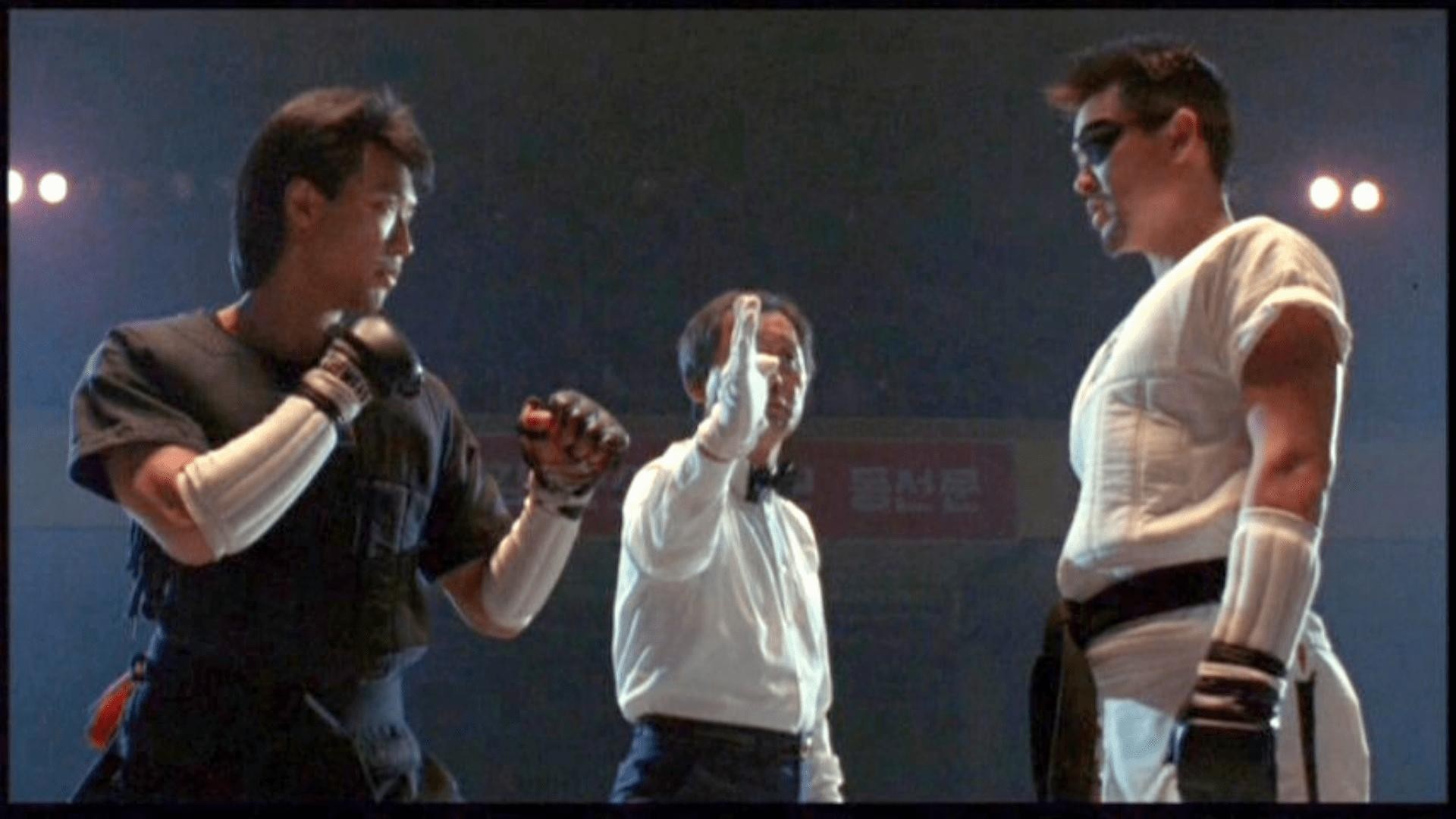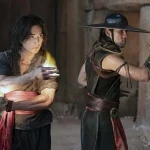“Best of the Best” (1989)

Best of the Best (1989), directed by Robert Radler, is a compelling sports drama that delves into themes of teamwork, personal redemption, and the pursuit of excellence. The film stars Eric Roberts, James Earl Jones, and Phillip Rhee and has garnered a dedicated following for its inspirational story and intense martial arts sequences. As a film that combines elements of sports competition with personal and emotional growth, Best of the Best offers a rich narrative that resonates with themes of perseverance and honor.
The film centers around a group of American martial artists who are selected to compete in the World Taekwondo Championship against a formidable Korean team. The story follows Alex Grady (Eric Roberts), a former martial arts champion who is coaxed out of retirement to lead the American team. Alongside him are his teammates, including the emotionally troubled Travis (Chris Penn), the disciplined and skilled fighter Tommy (Phillip Rhee), and the steadfast coach, Coach Bracey (James Earl Jones).
The American team faces numerous challenges as they prepare for the championship, both from the intense training and from their own personal struggles. Alex, in particular, grapples with his own demons and past failures as he attempts to lead the team to victory. The film builds up to the climactic tournament, where the American team must confront not only their formidable Korean opponents but also their own internal conflicts and insecurities.

Best of the Best explores themes of redemption and teamwork through its characters and narrative. Alex Grady’s journey is central to the theme of personal redemption. Once a champion whose career faltered, Alex must confront his past mistakes and overcome his personal doubts to lead his team to success. His transformation from a troubled fighter to a mentor and leader exemplifies the film’s message of overcoming obstacles and seeking redemption through dedication and hard work.
The theme of teamwork is also crucial to the film. The American team’s journey highlights the importance of unity and collaboration in achieving success. Despite their individual talents and personal issues, the characters must learn to work together and support one another. The film portrays the struggles and triumphs of building a cohesive team, emphasizing that success is not solely about individual prowess but also about mutual support and trust.

The performances in Best of the Best significantly contribute to the film’s emotional impact. Eric Roberts delivers a compelling portrayal of Alex Grady, capturing the character’s internal conflicts and growth. Roberts’s performance conveys Alex’s vulnerability and determination, making his journey of redemption both relatable and inspiring.
James Earl Jones, as Coach Bracey, provides a grounded and authoritative presence. His role as a mentor and motivator adds depth to the film, and his interactions with the team highlight the importance of leadership and guidance. Jones’s performance adds a layer of emotional weight to the story, underscoring the film’s themes of mentorship and personal growth.
Phillip Rhee’s portrayal of Tommy is noteworthy for its combination of skill and emotional depth. Rhee’s performance highlights Tommy’s dedication and personal struggles, making him a relatable and sympathetic character. The dynamic between Tommy and his teammates adds richness to the film’s exploration of team dynamics and personal growth.
Robert Radler’s direction of Best of the Best effectively combines intense martial arts sequences with character-driven storytelling. The film’s action scenes are choreographed with precision, showcasing the skills of the martial artists and adding a dynamic energy to the narrative. The fight sequences are integral to the film, highlighting the physical and emotional stakes of the competition.

The film’s cinematography, by Richard M. Thurow, captures both the intensity of the martial arts performances and the personal moments of the characters. The use of close-ups and wide shots enhances the impact of the action scenes while also providing insight into the characters’ emotions and relationships.
The musical score by Richard Marvin complements the film’s dramatic and action-oriented elements. The score’s energetic and motivational themes underscore the film’s focus on competition and personal growth, adding to the overall emotional and inspirational tone.
Best of the Best received a positive reception for its inspirational story, engaging performances, and well-executed martial arts sequences. The film’s emphasis on themes of redemption, teamwork, and perseverance resonated with audiences, making it a beloved entry in the sports drama genre. Its portrayal of martial arts and competition also contributed to its appeal, attracting fans of both sports and action films.
The film’s success led to several sequels, including Best of the Best II (1993) and Best of the Best 3: No Turning Back (1995), further expanding on the characters and themes introduced in the original film. The enduring popularity of Best of the Best is a testament to its impactful storytelling and the universal appeal of its themes.
Best of the Best (1989) is a powerful sports drama that combines intense martial arts action with a deeply emotional narrative. Through its exploration of redemption, teamwork, and personal growth, the film offers an inspirational story that resonates with audiences. The compelling performances by Eric Roberts, James Earl Jones, and Phillip Rhee, combined with Robert Radler’s direction and the film’s dynamic martial arts sequences, create a memorable and impactful cinematic experience. Best of the Best stands as a testament to the enduring appeal of sports dramas and the universal themes of perseverance and redemption.











